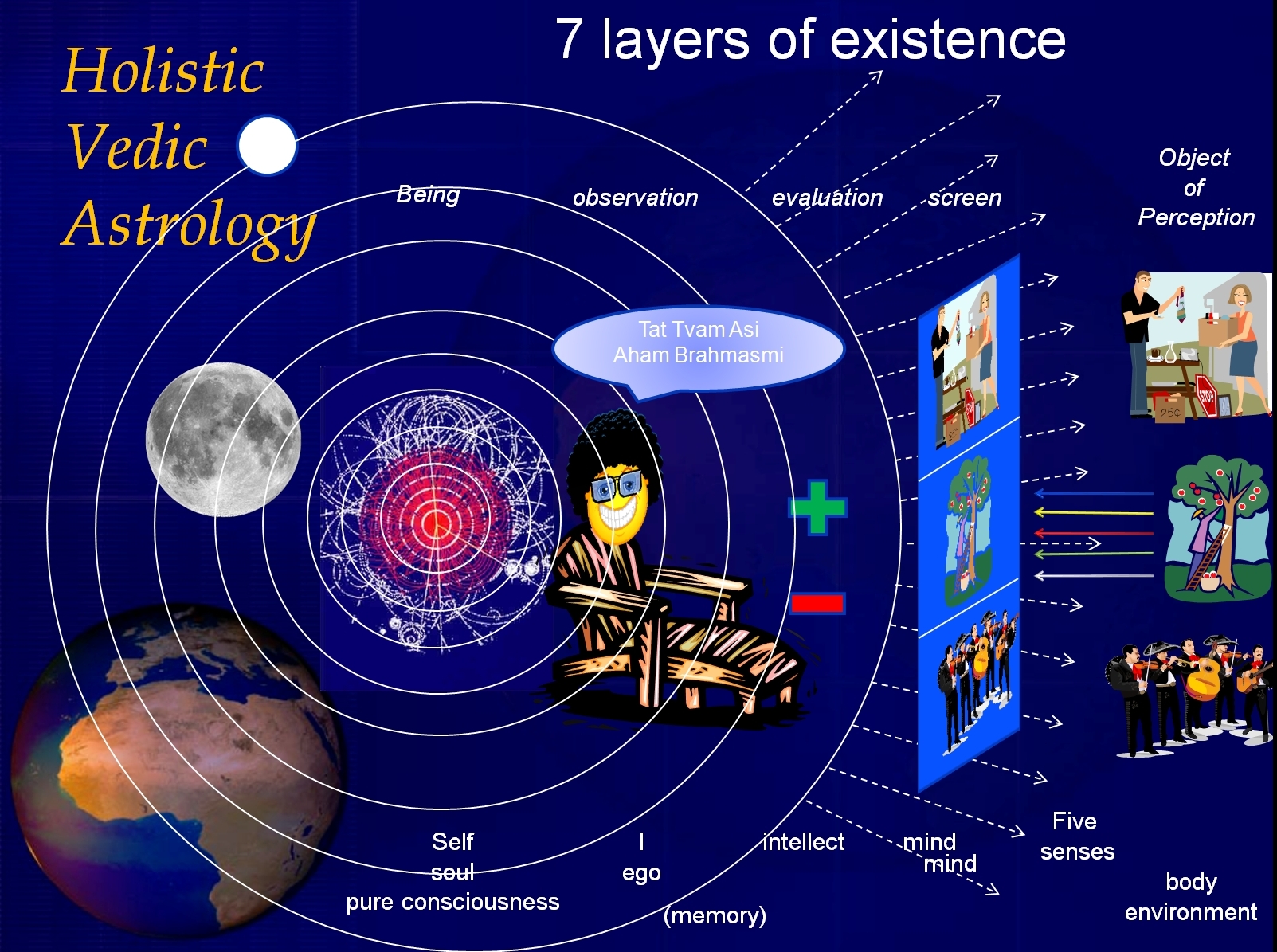 There are seven layers of the human existence, which we will here condense to six:
There are seven layers of the human existence, which we will here condense to six:| - physical level | body and environment |
| - energy or prana level | sense organs |
| - emotional level | mind |
| - mental level | intellect |
| - causal level | I, ego |
| - transcendental level | SELF |
Ideally the process of perception and action is a frictionless flow of energy from the outer perception (physical world) reflected in the mind, evaluated by the intellect and observed by the I, the ego. In the ideal state the I identifies with its absolute, infinite, immortal nature, the SELF or the Pure Consciousness.
In the language of the Veda:
Atman realizes that it is Brahman. Tat tvam asi. Aham brahmasmi.
To make this abstract statement which is usually not a common experience a bit better understandable let us use a picture:
 The
different objects of perception are projected by our senses on sort of a screen
which is our mind. Here the whole outer life and its inner resonance
(feelings which we attribute to the perception) pass by like in a
movie. Everyone has it's own movie, life-drama, soap opera going on.
The
different objects of perception are projected by our senses on sort of a screen
which is our mind. Here the whole outer life and its inner resonance
(feelings which we attribute to the perception) pass by like in a
movie. Everyone has it's own movie, life-drama, soap opera going on.The intellect interprets the perceptions and evaluates them as either fitting or unfitting, agreement or disagreement, liking or disliking, whereas the I, the ego, is the silent observer of this whole process and happening.
The I being aware of its infinite nature, the source of infinite energy, harmony, peace, power, remains untouched by the outer happenings - and is able with a clear and balanced intellect to take conscious and free decisions with reference to the perception(s).
In higher states of consciousness the infinite nature of the Pure Consciousness is not only experienced inside but as all-pervading everywhere.
